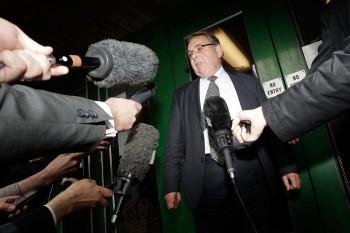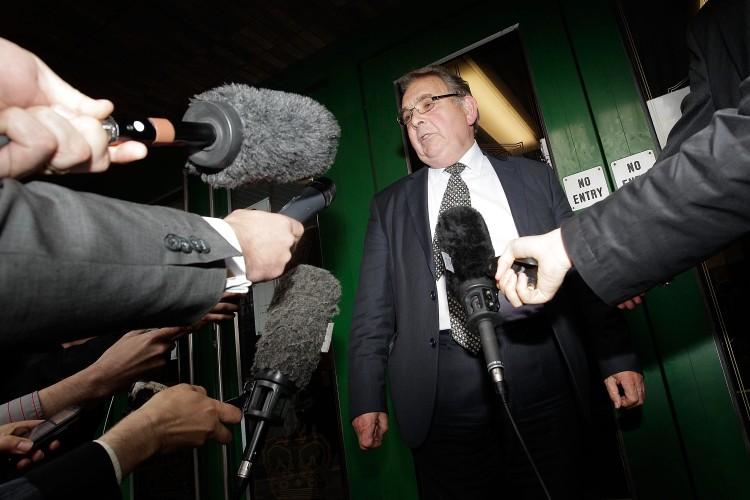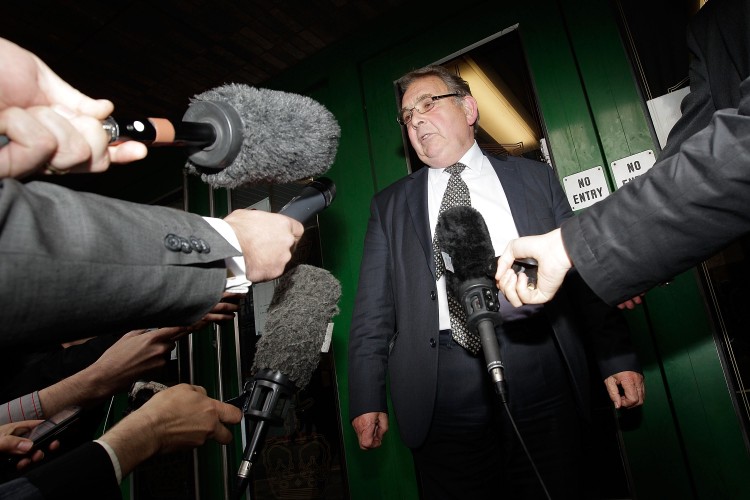Former Tory Peer Jailed for Falsely Claiming Parliamentary Expenses
Lord Hanningfield gets nine months for claiming £13,379 in parliamentary expenses as police check “concerns” over his time as head of Essex County Council.

Lord Hanningfield leaves Chelmsford Crown Court on May 26, 2011. He was found guilty of six charges of false accounting in relation to his expenses as a Parliamentary peer. Matthew Lloyd/Getty Images
|Updated:





